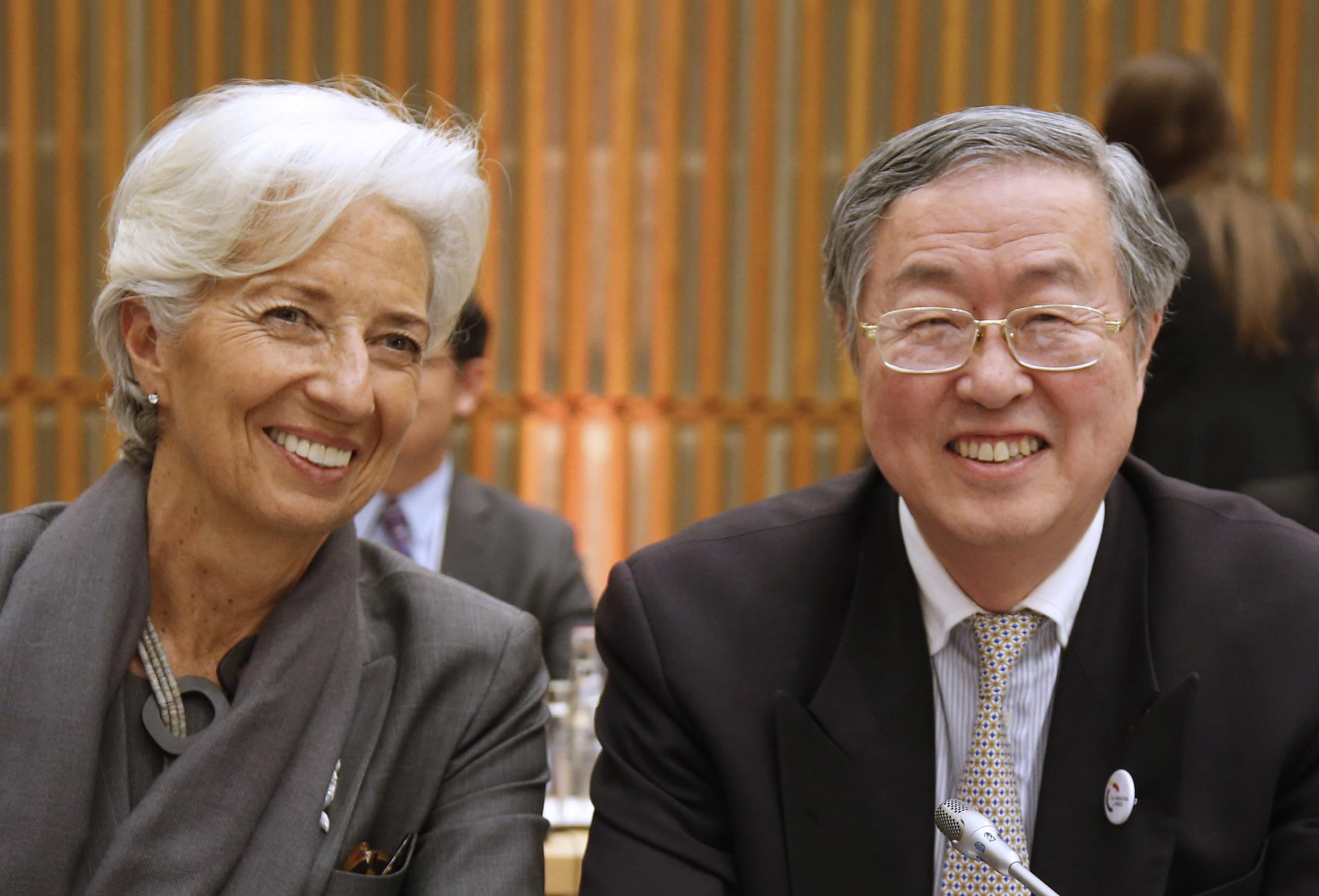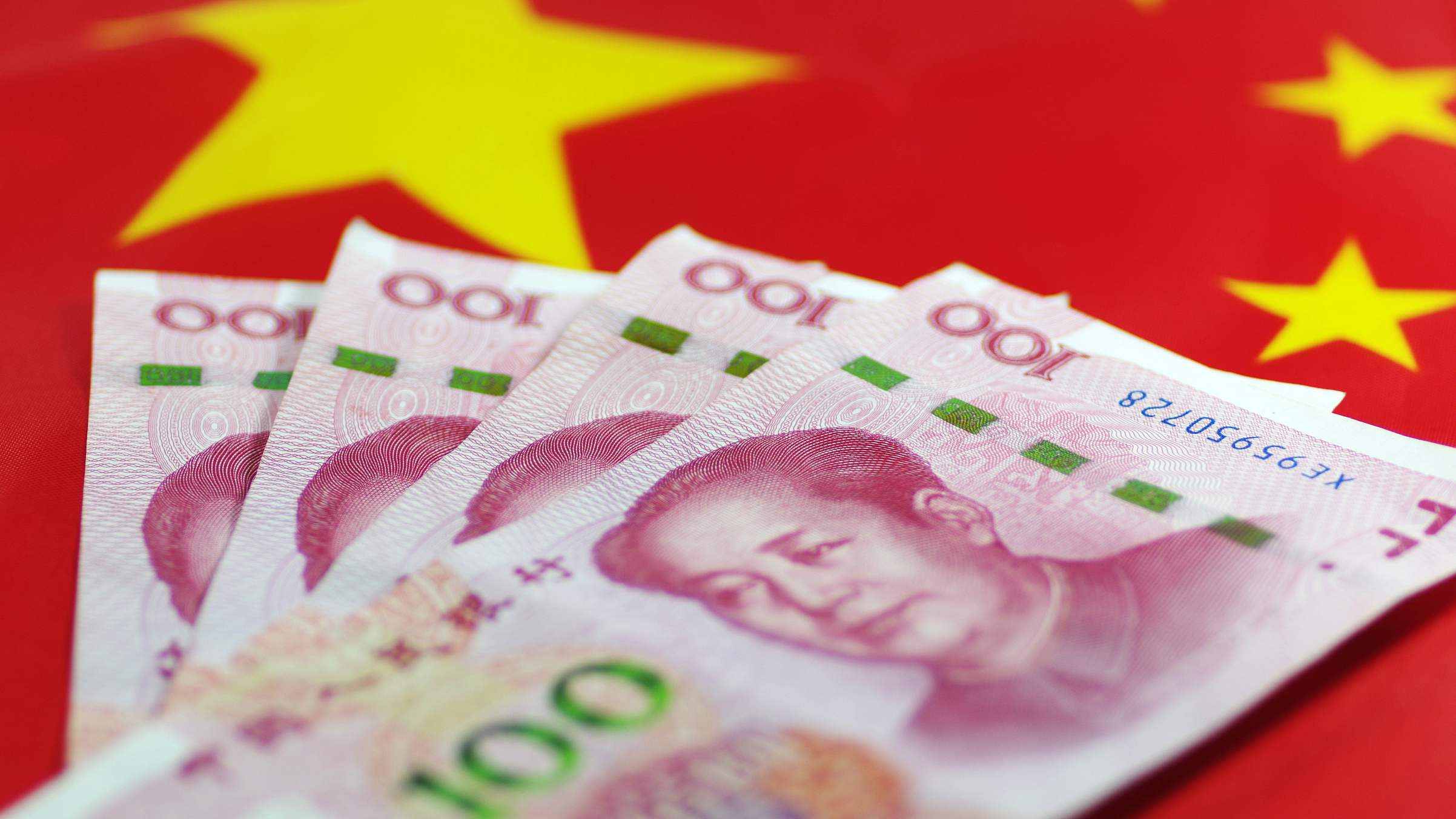
Opinion
18:34, 16-Apr-2019
No single nation should control a post-dollar reserve currency
Adam Garrie

Editor's Note: Adam Garrie is the director of the UK-based global policy and analysis think tank Eurasia Future and co-host of the talk show "The History Boys." The article reflects the author's opinion, and not necessarily the views of CGTN.
Traditionally, the world's strongest economy has automatically determined the world's international reserve currency and foremost currency of trade. This basic fact combined with a reality in which Washington continues to weaponize the dollar against perceived geopolitical opponents has led to many countries and individuals openly discussing what global financial settlements might look like after the U.S. dollar loses its status as the international reserve currency.
A sensible answer to this question which puts water on the fire of "reserve currency nationalism" was delivered in 2009 by the then Governor of the People's Bank of China, Zhou Xiaochuan. Zhou highlighted how the 2008 recession was in part caused by one of the same inherent problems which led to the collapse of the Bretton Woods system in 1971.
Zhou correctly identified the Triffin Dilemma as a negative phenomenon which eventually befalls every country whose national currency is used as the international reserve currency. He defined this dilemma as follows: “the issuing countries of reserve currencies cannot maintain the value of the reserve currencies while providing liquidity to the world.”
His solution was to work towards a system in which no single nation issues, and therefore controls an international reserve currency. Zhou asserted that in such a new system, no nation would have to ultimately inflate its own money supply in order to provide liquidity to the rest of the world.
Also, under such a new framework, the international reserve currency basket would help to provide stability to the international trading community because the overall value of such a currency basket would not be the sole charge of any one nation.

Zhou Xiaochuan, then Governor of the People's Bank of China, has forged strong ties between China and financial institutions like the IMF, headed by Christine Lagarde. /VCG Photo
Zhou Xiaochuan, then Governor of the People's Bank of China, has forged strong ties between China and financial institutions like the IMF, headed by Christine Lagarde. /VCG Photo
Zhou tended to look favorably on the Special Drawing Rights (SRDs) currency basket whose value is based on a combined/averaged value of the U.S. dollar, Chinese yuan, euro, British pound and Japanese yen. Zhou offered the following explanation as to why SRDs or a similar arrangement would be a step in the right direction for the world, including the United States.
“A super-sovereign reserve currency not only eliminates the inherent risks of credit-based sovereign currency, but also makes it possible to manage global liquidity. A super-sovereign reserve currency managed by a global institution could be used to both create and control the global liquidity. And when a country's currency is no longer used as the yardstick for global trade and as the benchmark for other currencies, the exchange rate policy of the country would be far more effective in adjusting economic imbalances. This will significantly reduce the risks of a future crisis and enhance crisis management capability.”
There are, of course, other proposals for an international reserve currency that are not based on a lone nation's fiat monetary policies. A return to a classical gold standard or silver standard continues to be proposed in certain circles while some continue to favor a mixed metallic standard.
As China intends to be an active participant in discussions regarding the future of an international reserve currency (or currencies), it is important to understand that few Chinese monetary experts are pushing for the Chinese yuan to fulfill the present role of the dollar internationally.
Instead, Chinese monetary policy remains one in which the global liquidity and convertibility of Chinese yuan gradually increase in line with existing demand and international market trends.

Chinese yuan. /VCG Photo
Chinese yuan. /VCG Photo
As it is predicted that China will grow to become the world's largest economy in terms of overall GDP by mid-century, there is a clear precedent which would indicate that by the end of the 21st century, the Chinese yuan will be the international reserve currency.
However, such development is far from guaranteed. China's explicit aversion to global hegemony along with Zhou Xiaochuan's decade-old warning about the dangers of any single nation's currency acting as an international reserve currency helps to indicate that China may take a different path from that which the U.S. took in the 20th century.
For China, long-term goals in monetary policy are underpinned by a commitment to a win-win outcome in which China will continue to expand cooperation with the world without seeking to dominate the world nor make the world dependent on China.
This represents the opposite approach to that which the U.S. took in the 1940s, during which time U.S. policymakers sought to create “an American century” through the use of carefully constructed policy arrangements.
Although it is impossible to predict what the world will use as its international reserve currency in 50 years of time, it is important to understand that China already seeks to avoid the mistakes made by others.
(If you want to contribute and have specific expertise, please contact us at opinions@cgtn.com.)

SITEMAP
Copyright © 2018 CGTN. Beijing ICP prepared NO.16065310-3
Copyright © 2018 CGTN. Beijing ICP prepared NO.16065310-3